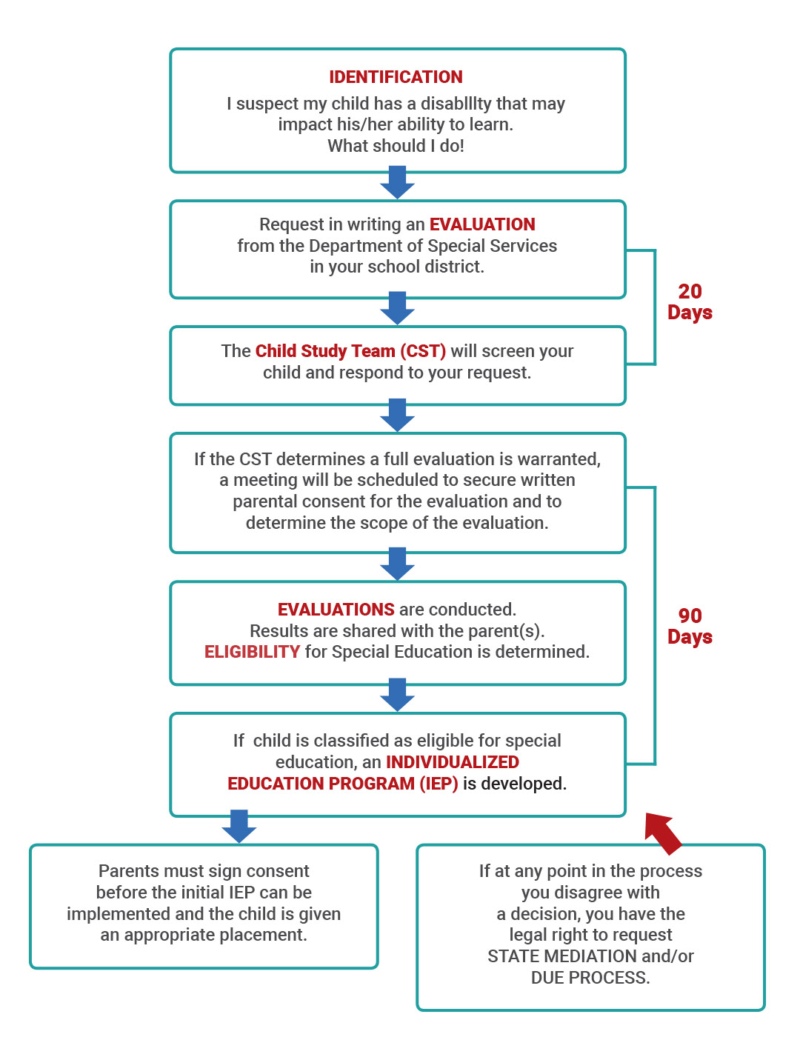Child Study Team Process

A continuum of special education programs are available for students between the ages of 3 and 21 who require specialized instruction and/or related services such as speech/language services, occupational therapy and physical therapy in order to meet their educational needs.
It is recommended that referrals for Child Study Team evaluations should be initiated through I&RS Team at your child's school.

What is an IEP?
After your child is determined to be eligible for special education and related services, a meeting will be held to develop your child’s IEP. The IEP should describe how your child currently performs and your child’s specific instructional needs. The IEP must include measurable annual goals and short term objectives or benchmarks.
Who must attend the IEP meeting?
Parent
General Education Teacher (to the extent appropriate), if the student is or will be participating in General Education
Special Education Teacher (or special education provider where appropriate)
At least one Child Study Team member
Case Manager
School District Representative
Others at the discretion of the parent or school district
If transition will be discussed at the IEP meeting, a representative of any other agency likely to provide or pay for services.
Student, if appropriate - beginning at age 14, the student must be invited to attend the IEP meeting to meet the requirements for transition planning.
You have the right to:
Copies of your child’s IEP
Bring others with you to the meetings
Have the IEP implemented within 90 days of the school’s receipt of your consent for the first evaluation
Have the IEP implemented as soon as possible following an IEP meeting
Have the IEP reviewed at least annually
Have extended school year services considered
PRISE- Parental Rights in Special Education
As the parent of a student who is or may be determined eligible for special education services or as an adult student who is or may be determined eligible for special education services, you have rights regarding identification, evaluation, classification, the development of an IEP, placement and the provision of a free, appropriate public education under the New Jersey Administrative Code for Special Education, N.J.A.C. 6A:14. A description of these rights, which are called procedural safeguards, is contained in the document, Parental Rights in Special Education (PRISE). The document is published by the New Jersey Department of Education.
A copy of the PRISE is provided to you one time each year, upon request by you, upon referral for an initial evaluation, when a disciplinary action that constitutes a change in placement is imposed, when a due process hearing is requested, and when a request for a complaint investigation is filed by you.
To obtain a copy of PRISE, please click here: http://www.nj.gov/education/specialed/form/prise/prise.pdf
